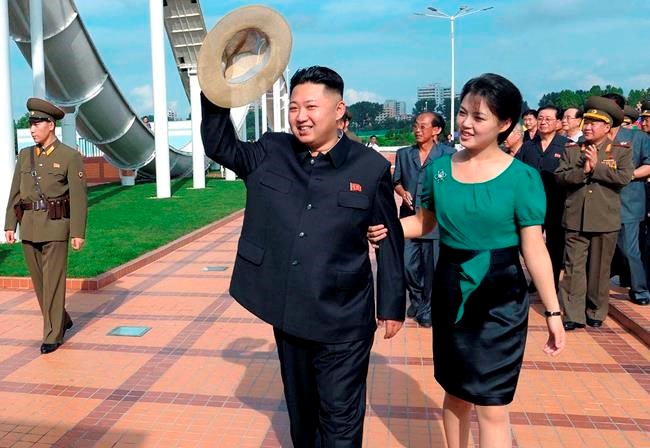TOKYO — North Korea’s collapse has been predicted — wrongly— for decades.
Some said it would happen after fighting ended in the Korean War in 1953. Others thought it would be during a 1990s famine or when national founder Kim Il Sung died in 1994. And when the death of his son, Kim Jong Il, thrust a little-known 20-something into power in 2011, some felt the end was near.
It's no surprise then that recent
South Korea believes Kim is alive and in control, and most analysts agree that even if he weren't, Kim’s powerful sister, Kim Yo Jong, would likely take control, possibly with the help of select officials.
Many experts say North Korea would weather the transition just as it has every other upheaval.
But what if it didn't? Here's a look at how other nations might deal with a catastrophe in North Korea.
___
THE UNITED STATES
If the government in Pyongyang should collapse, a U.S.-South Korean contingency plan called OPLAN 5029 would reportedly come into play.
The plan is meant to secure the border and North Korea’s nuclear weapons if the government can’t function or if control of those weapons becomes uncertain.
“The million-dollar question is: When do you invoke the OPLAN and what indicators do you rely on to do so? Because one country’s ‘securing the country’ operation can look to the other nation like an ‘invasion plan.’ And then all hell can break loose,” said Vipin Narang, a North Korea nuclear specialist at MIT.
The biggest U.S. worry is North Korea’s nuclear stockpile being used, stolen or sold.
“If the U.S. does not have plans to go in and secure and retrieve North Korean nukes — to the extent we know where they are — then we are not doing our job,” said Ralph Cossa, president emeritus of the Pacific Forum
The danger of a U.S. misstep during a collapse would be huge. Among the potential problems would be
U.S. Secretary of State Mike Pompeo said recently, when asked about Kim’s health, that Washington will continue to pursue complete denuclearization, “regardless of what transpires inside of North Korea with respect to their leadership.”
___
CHINA
China is the North’s main source of aid and diplomatic backing and considers political stability in its impoverished
Although China has agreed to United Nations sanctions over the North’s weapons programs, it's wary of anything that would collapse the economy or unseat the ruling party and potentially unleash conflict on its border and a flood of refugees crossing over.
China in recent years has reinforced its border
China’s biggest concern, however, is thought to be the prospect of American and South Korean troops operating along its border, a worry that prompted China to enter the Korean War 70 years ago.
A change in leadership in North Korea, however, would be unlikely to bring about major changes to the relationship, said Lu Chao, a professor at the Liaoning Academy of Social Sciences in China.
___
SOUTH KOREA
Aside from joint plans with the U.S. military, internal South Korean preparations for a North Korean collapse reportedly deal with how to shelter an influx of refugees and how to set up an emergency administrative headquarters in the North.
According to leaked U.S. diplomatic cables, then senior South Korean presidential adviser Kim Sung-hwan told a top U.S. diplomat in 2009 that South Korea’s constitution states that North Korea is part of South Korean territory and that “some scholars believe that if the North collapses, some type of ‘interim entity’ will have to be created to provide local governing and control travel of North Korean citizens.”
When asked recently about contingency plans, South Korea’s Unification Ministry said it “prepares for all possibilities."
One big problem is that unlike China, South Korea cannot mobilize the large number of soldiers needed to stabilize North Korea.
“If the North Korean regime is on the brink of collapse, China will most likely send troops to its ally and establish a pro-Beijing regime in the country,” South Korea’s JoongAng Ilbo newspaper said in a recent editorial. “Seoul must do its best to minimize China’s intervention in the North based on the solid alliance with" Washington.
___
AP correspondent Hyung-jin Kim in Seoul contributed to this report.
Foster Klug, AP's news director for the Koreas, Japan and the South Pacific, has reported on North Korea and Asia since 2005.
Foster Klug, The Associated Press




